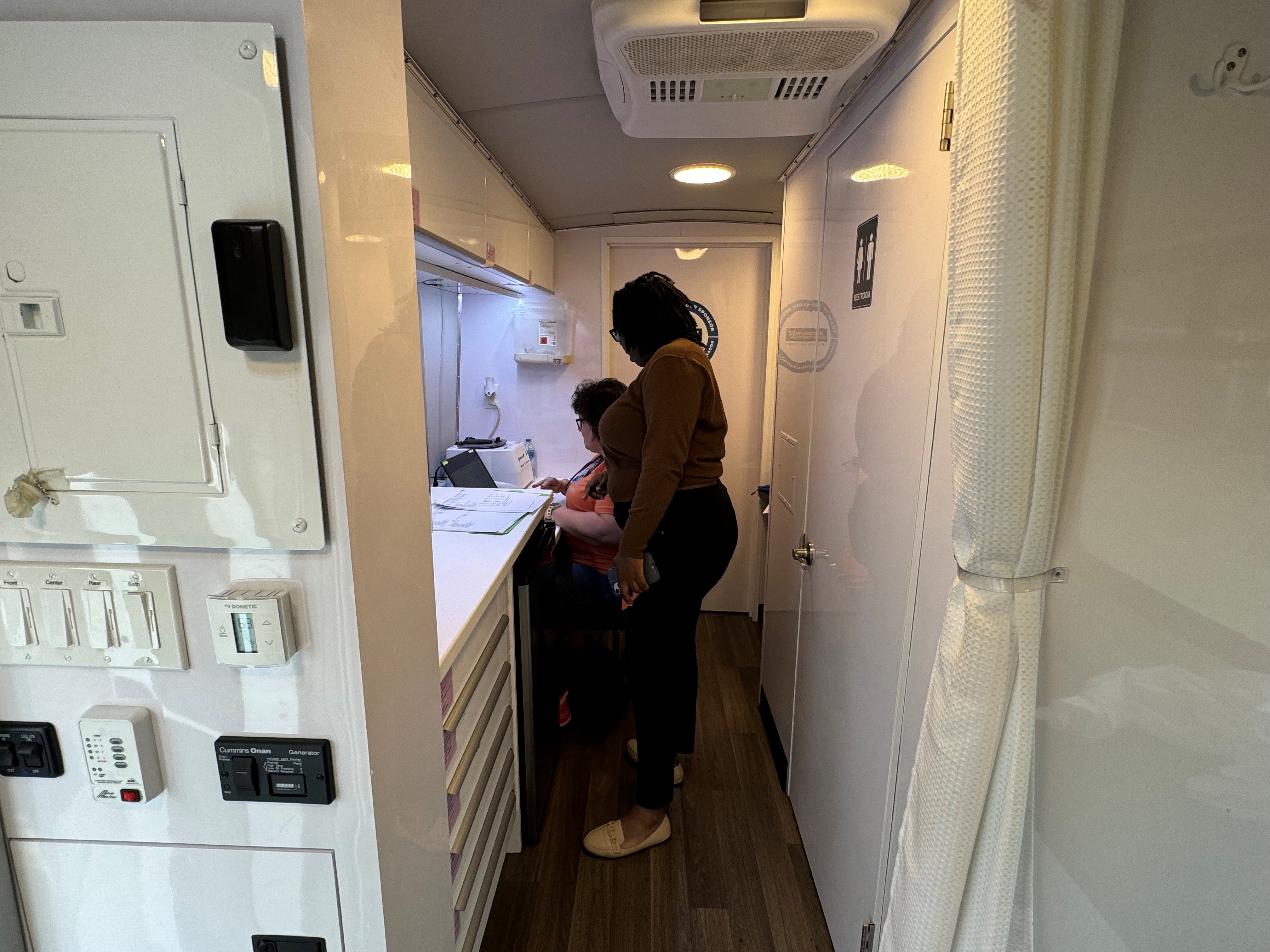Improving Healthcare Access in Wake County

There are many barriers to healthcare including lack of health insurance, high cost and limited access to transportation. In Wake County, according to the Community Health Needs Assessment, those without insurance make up 10% of the population under age 65. In an effort to improve health outcomes for vulnerable populations, The Salvation Army of Wake County has partnered with Advance Community Health to offer health services to those in need.
“Our mission is to deliver quality, compassionate primary health care,” said Rachel Wiggs, mobile health practice manager with Advance Community Health. “Our partnership with The Salvation Army of Wake County allows us to bring our mobile health unit on site at the Center of Hope Shelter and provide essential primary and pediatric care directly to those who may have limited access to healthcare.”

The mobile health unit is open to the public. It operates weekly on Tuesdays and Wednesdays from 3-7 p.m. at The Salvation Army Center of Hope, 1863 Capital Boulevard in Raleigh.
“We are excited to be able to offer this service to the community,” said Stephen Gruver, social services director for The Salvation Army of Wake County. “We see the urgent need firsthand. Many of the individuals we serve are without health insurance and have difficulty accessing the critical health services they need. Our partnership with Advance Community Health will go a long way in bridging this gap.”
“The Salvation Army's mission to serve vulnerable populations aligns with our goal of creating healthier communities,” said Wiggs. “By bringing our services directly to the shelter, we can help bridge barriers in care, promote wellness, and offer preventive services to individuals and families who need it most. This collaboration also provides an opportunity to reach people in need where they are, ensuring that healthcare is accessible, convenient, and community centered.”

Along with limited access to care and lack of affordability, Wiggs says chronic disease management is a challenge. With a high prevalence of conditions such as diabetes, hypertension, and heart disease, she says better preventive care and long-term management are needed. She says increased education and resources on healthy lifestyles and preventive care are also needed, particularly in lower-income communities.
Advance Community Health offers a sliding fee scale, ensuring that services are affordable for all patients, including the uninsured and underinsured.
“Our goal is to reduce the financial burden of healthcare and ensure cost is not a barrier to receiving care,” added Wiggs.
